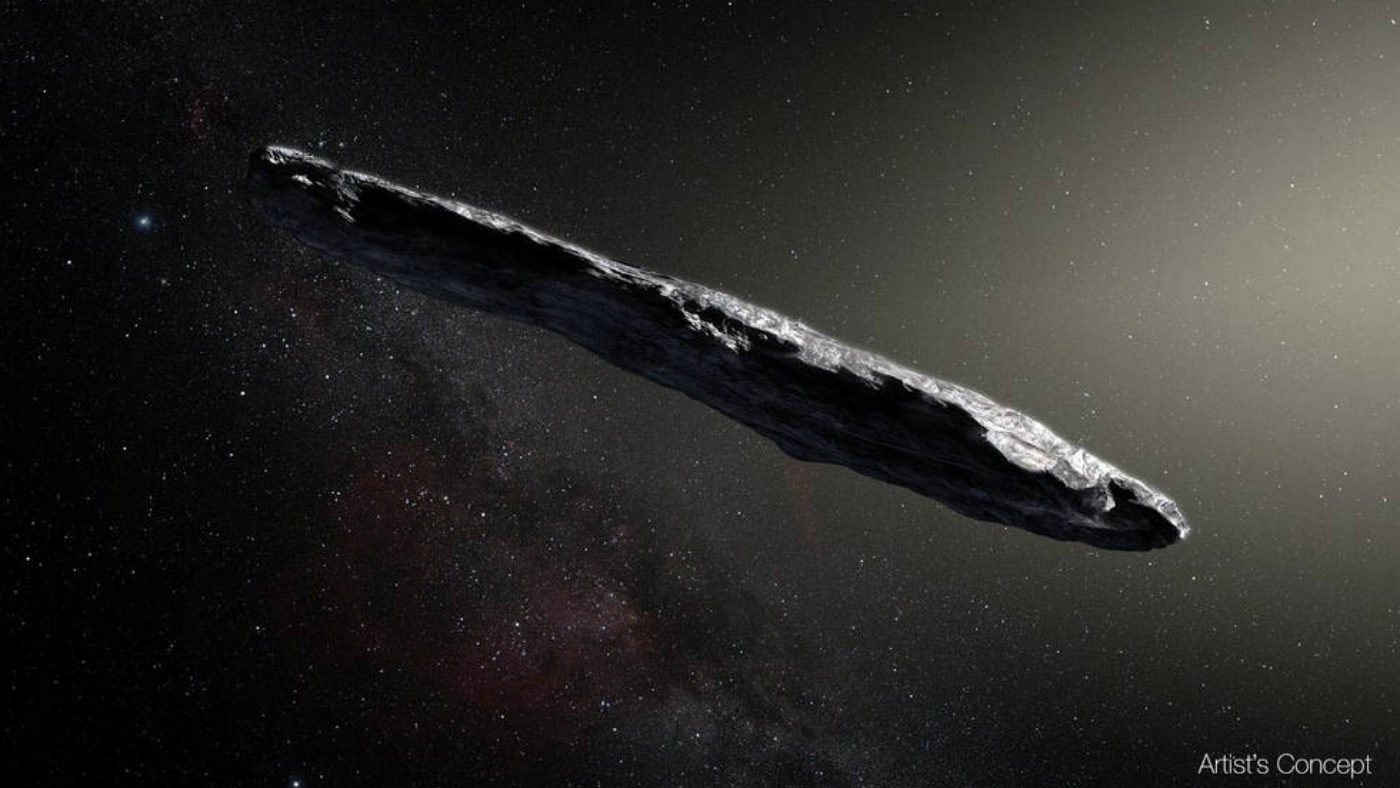Oumuamua: what was mysterious cigar-shaped interstellar object?
New study dismisses alien spaceship theory

A free daily email with the biggest news stories of the day – and the best features from TheWeek.com
You are now subscribed
Your newsletter sign-up was successful
Scientists investigating a cigar-shaped interstellar object spotted almost two years ago have ruled out theories that it was an alien spaceship - but admit they still don’t know how to classify the vast chunk of rock.
The unusual object has been named ‘Oumuamua (pronounced oh-MOO-uh-MOO-uh) - Hawaiian for a messenger arriving from a great distance - and is estimated to be half a mile (800m) long.
And as the first object from another star system recorded passing through our solar system, it has triggered a great deal of interest.
The Week
Escape your echo chamber. Get the facts behind the news, plus analysis from multiple perspectives.

Sign up for The Week's Free Newsletters
From our morning news briefing to a weekly Good News Newsletter, get the best of The Week delivered directly to your inbox.
From our morning news briefing to a weekly Good News Newsletter, get the best of The Week delivered directly to your inbox.
So when was it first spotted?
Scientists tracked the reddish-coloured object from 14 October 2017 until 2 January 2018, after it was first sighted by astronomers at the University of Hawaii using a Pan-STARRS1 telescope, reports Reuters.
‘Oumuamua then became too faint to detect even using the most powerful telescopes.
What is it?
A free daily email with the biggest news stories of the day – and the best features from TheWeek.com
Astronomers are still uncertain about that.
“Our key finding is that ‘Oumuamua’s properties are consistent with a natural origin,” says University of Maryland astronomer Matthew Knight, author of a new research paper published in the journal Nature Astronomy. “We have tried to avoid putting it in one of those boxes and prefer to call it more generically an ‘object’.”
Experts have suggested that ‘Oumuamua might be a comet, an asteroid or a chunk of planet, but have been unable to explain its strange shape and spin, which did not follow the expected gravitational orbit.
“A paper last year from Harvard astrophysics enfant terrible Avi Loeb briefly suggested the possibility that the rock was an alien probe. It was like a spark to dry tinder, honestly, and other scientists have been running around with buckets ever since,” reports Science Alert.
Knight insists that the evidence shows the “alien explanation is unwarranted”.
Are there more out there?
“We have never seen anything like ‘Oumuamua in our solar system,” said Knight. “It’s really a mystery still... There is a whole host of natural phenomena that could explain it.”
But as Space.com notes, “astronomers anticipate spotting more interstellar visitors” as telescope technology increases.
“The Large Synoptic Survey Telescope (LSST), currently under construction in Chile, may help to reveal many of these once the instrument sees first light in 2022,” reports the specialist news site.
Knight says that until more interstellar objects are detected, there is no way of knowing whether Oumuamua is “weird or common”.
“If we find ten to 20 of these things and ‘Oumuamua still looks unusual, we’ll have to re-examine our explanations,” he concludes.
-
 The environmental cost of GLP-1s
The environmental cost of GLP-1sThe explainer Producing the drugs is a dirty process
-
 Greenland’s capital becomes ground zero for the country’s diplomatic straits
Greenland’s capital becomes ground zero for the country’s diplomatic straitsIN THE SPOTLIGHT A flurry of new consular activity in Nuuk shows how important Greenland has become to Europeans’ anxiety about American imperialism
-
 ‘This is something that happens all too often’
‘This is something that happens all too often’Instant Opinion Opinion, comment and editorials of the day
-
 Epstein files topple law CEO, roil UK government
Epstein files topple law CEO, roil UK governmentSpeed Read Peter Mandelson, Britain’s former ambassador to the US, is caught up in the scandal
-
 Iran and US prepare to meet after skirmishes
Iran and US prepare to meet after skirmishesSpeed Read The incident comes amid heightened tensions in the Middle East
-
 Israel retrieves final hostage’s body from Gaza
Israel retrieves final hostage’s body from GazaSpeed Read The 24-year-old police officer was killed during the initial Hamas attack
-
 China’s Xi targets top general in growing purge
China’s Xi targets top general in growing purgeSpeed Read Zhang Youxia is being investigated over ‘grave violations’ of the law
-
 Panama and Canada are negotiating over a crucial copper mine
Panama and Canada are negotiating over a crucial copper mineIn the Spotlight Panama is set to make a final decision on the mine this summer
-
 Why Greenland’s natural resources are nearly impossible to mine
Why Greenland’s natural resources are nearly impossible to mineThe Explainer The country’s natural landscape makes the task extremely difficult
-
 Iran cuts internet as protests escalate
Iran cuts internet as protests escalateSpeed Reada Government buildings across the country have been set on fire
-
 US nabs ‘shadow’ tanker claimed by Russia
US nabs ‘shadow’ tanker claimed by RussiaSpeed Read The ship was one of two vessels seized by the US military